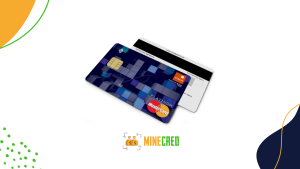
Financial Security
If you care about your economic health, it is important to think about financial security. It isn’t just a buzzword; it’s a fundamental aspect of your overall well-being. In this comprehensive guide, we will explore the importance of financial health and security, speak about this important subject concerning your economic well-being, and provide valuable tips to prevent fraud and ensure your monetary wellness in everyday life.
The Importance of Financial Security
Financial security serves as the bedrock of a stable and fulfilling life. It’s not merely about amassing wealth; it’s about securing your financial future and protecting yourself from potential pitfalls. Here are some key reasons why this subject is crucial:
Peace of Mind
Financial security brings peace of mind. Knowing you have a financial safety net allows you to face life’s uncertainties with confidence, whether it’s a medical emergency, a sudden job loss, or unexpected expenses.
Freedom and Choices
Achieving financial security provides you with the freedom to make choices based on your desires rather than just your needs. You can pursue your passions, travel, or invest in opportunities that matter to you.
Reduced Stress
Financial stress can take a toll on your mental and physical health. With great financial health, you can reduce stress and enjoy an overall improved well-being.
Generational Wealth
Financial security isn’t just about you; it’s about leaving a legacy for your loved ones. It ensures that your children and grandchildren have a solid financial foundation to build upon.
Information Security
Information safety is a critical aspect of financial security. It encompasses protecting your financial data, assets, and personal information from unauthorized access, fraud, and theft. Understanding information security is vital, as it directly impacts your economic well-being.
What is Information Security?
Information security involves safeguarding your sensitive monetary information, such as bank account details, Social Security numbers, and passwords. It encompasses measures and practices to ensure the confidentiality, integrity, and availability of your data.
The Importance of Information Security
Information security is paramount in today’s digital age. Failure to protect your financial information can result in devastating consequences, including identity theft, financial loss, and damaged credit. On the other hand, strong information security measures can safeguard your economic well-being and provide peace of mind.
How it could Helps You:
Data Protection: Information security safeguards your sensitive financial data, preventing unauthorized access and data breaches.
Identity Theft Prevention: Robust information security measures make it difficult for identity thieves to steal your personal information.
How it Can Prejudice You:
Identity Theft: Inadequate information security can lead to identity theft, where criminals use your personal information to commit fraud or theft.
Financial Loss: Without proper information security, you may become a victim of monetary fraud, resulting in monetary losses.
Preventing Fraud for financial security
Fraud is a prevalent issue worldwide, and South Africa is no exception. It’s essential to be aware of common fraud schemes and take preventive measures to protect your financial security.
Common Types of Fraud in South Africa
If you know how you can be a fraud victim, it helps you to prevent many different situations. Knowledge is important to be prepared.
- Scams: South Africa faces various scams, including lottery scams, investment scams, and advance-fee fraud. Be vigilant and skeptical of unsolicited offers that seem too good to be true.
- Phishing: Phishing attempts involve fraudulent emails or messages that trick individuals into revealing sensitive information. Always verify the sender’s authenticity and avoid clicking on suspicious links.
- Identity Theft: Criminals may steal your personal information to commit identity theft. Protect your personal data, use strong passwords, and monitor your accounts for suspicious activity.
- Credit Card Fraud: Monitor your credit card statements for unauthorized transactions, and report any discrepancies immediately. Keep your card information secure and be cautious when using ATMs.
How to Prevent Fraud
Don’t be afraid of becoming a fraud victim, there is good news: you can prevent yourself from fraud with some simple tips. Let’s check it together!
- Education: Stay informed about common fraud tactics and educate yourself on how to recognize and avoid them.
- Vigilance: Be cautious of unsolicited emails, calls, or messages requesting personal information or financial details.
- Secure Passwords: Use strong, unique passwords for your accounts and change them regularly. Consider using a password manager to keep track of your credentials securely.
- Two-Factor Authentication (2FA): Enable 2FA wherever possible to add an extra layer of security to your accounts.
Financial Security in Everyday Life
Incorporating financial security into your daily routine can have a profound impact on your future. It means making informed financial decisions, being mindful of your spending, and continuously striving to improve your financial well-being.
Financial security in everyday life can lead to:
- Stress Reduction: A financially secure life minimizes financial stress, allowing you to focus on your overall well-being.
- Achieving Goals: Financial security enables you to pursue your dreams and long-term goals with confidence.
- Retirement Comfort: Proper financial planning ensures you’ll enjoy a comfortable retirement without financial worries.
Financial security lifestyle
Financial security is a journey that begins with awareness and proactive measures. Protecting your monetary information, preventing fraud, and integrating economic security into your daily life are crucial steps toward a brighter, more secure future. By taking these precautions, you can enjoy peace of mind, financial freedom, and the confidence to face whatever life throws your way.




